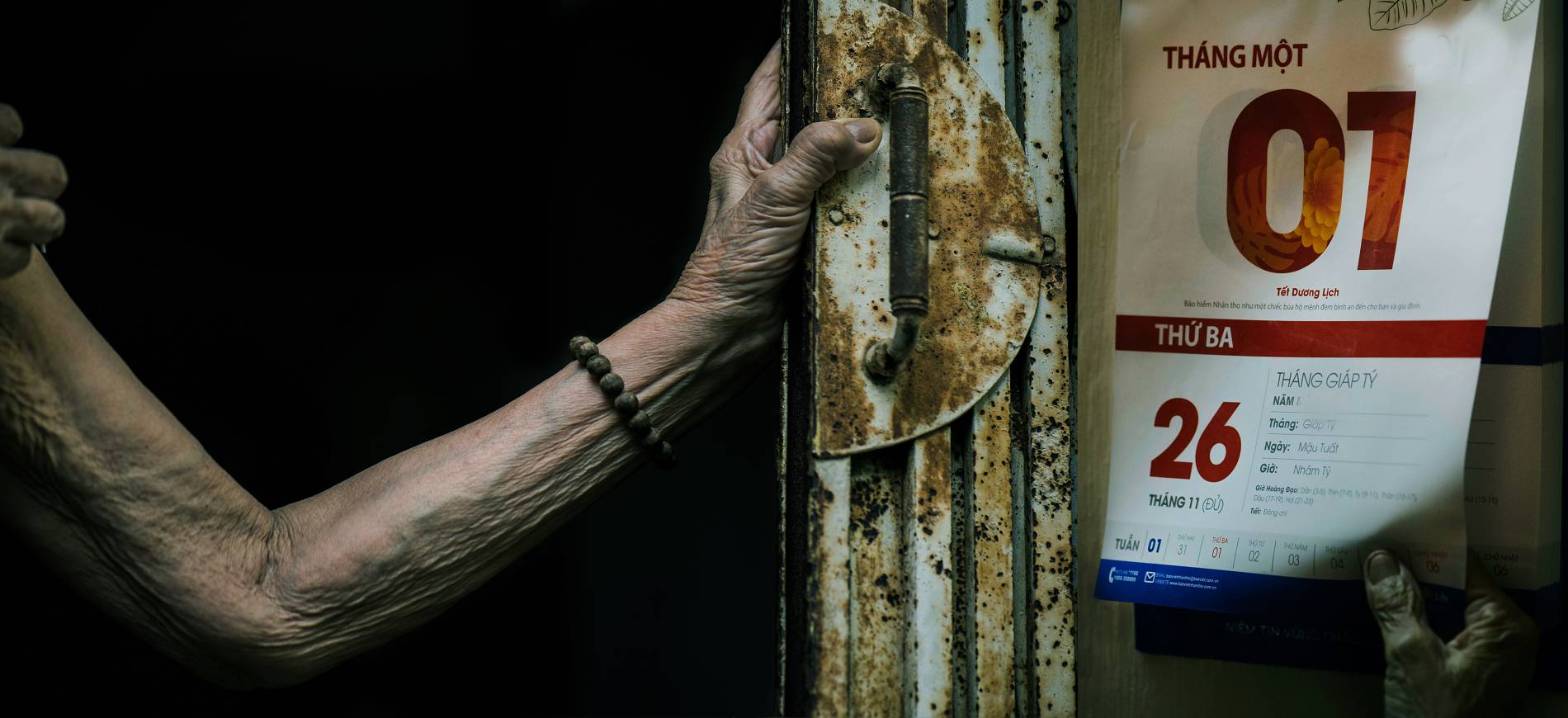Writer and art critic Andrei C. Serban, of The Monthly Film Festival (TMFF, UK) said that the film is "A poetic and gentle confession about love and the beauty of decay". Commenting on the film idea, Andrei C. Serban wrote: This short documentary is a declaration of love from a man for his mother. With a sensitive and extremely brave artistic approach, through "exposing" the ban on old age, the director not only brings the portrait of an extraordinary woman but also a reminder (memento mori) about the proliferation of life and the fragility of old age... This short film still exudes an undeniable attraction and filled gentleness. The idea of the film is very good.
Evaluating the script and the story, the art critic wrote: Going beyond the biographical premises based on available documents to illustrate the mother's life journey, the script also includes a little natural, improvised elements, and this has elevated the story beyond the scope of a documentary to convey a meaningful message of everyone.
Therefore, more than a portrait of a loved one, this project delves into the uncertainties of existence to accumulate gestures and words that further enhance the special bond between a mother and son. This approach is of course attractive in its own way, but it is also risky, in the sense that, in addition to the sudden beauty that explodes even from the most miserable details, the script can become messy in the ambition to accumulate everything possible.
Andrei C. Serban also appreciated the dialogue in the film when he said: Except for the small explanations planned by the director, the dialogue has a flow of natural interaction, far from the requirements of a pre-set script. Such a naturalness is hard to argue with, especially when the director is not driven by "special" ambition to change this document for "commercial" purposes.
Regarding filming and filming, Andrei C. Serban emphasized: The directors photography talent (which eventually became the subject of the short film, through the explanation of the ideas behind his exhibition) is clearly expressed in the film material of the project. Without any desire to beautify artificially, the director chose to describe the reality of her mother's life in a nutritious way, with all the "dark", "drowning" or painful details of it. The principles of a "classical" documentary, presented and explained, intertwined with the improvised flow of a new, realistic vision in a cinematic structure with outstanding authenticity.
However, criticians believe that: In terms of music, the main music section (leitmotif) that occasionally appears during the film's development has a strong emotional impact, but its drama is at risk of becoming a bit redundant when facing images that do not need any staging to move viewers. Although the motivation for choosing this song is obvious, using it sometimes tends to be excessive. Surely, at certain moments (especially in the second half of the project), the silence or surrounding noise will be much more effective.

Finally, when commenting on the director's vision,rei And C. Serban affirmed: Tran Viet Van has the courage of artists who believe that the truth is hidden in our daily reality. The director has managed to avoid the trap of easily losing money in a smooth tragedy, instead bringing a gentle confession about love and loss.
The ending of the film and the meaning of "My Mother" are a tragic confession full of poetry about beauty and travel, and at the same time illustrate a gentle reminder (memento mori), using the "recent material" of an extraordinary woman as a source of inspiration. This is a short, poetic and broken documentary about love and loss, in which Tran Viet Van has shown undeniable artistic sensitivity...
While Andrei C. Serban analyzed the film in depth in many aspects, the anonymous critic of Anatolia Film Festival emphasized his feelings about the film.
The critic wrote: "Mom, the world is vast/ The vastness is not as vast as our home. Even if I give you wealth and glory/ Glory, I will not be as good as having a mother". The lyrics of the song "My Mother" were chosen as the soundtrack for the documentary "My Mother", conveying a deep love and dedication - an emotional fiber reflecting the director's relationship with his mother.
Tran Viet Van, a famous photographer, has lived in a small house with his mother, a lost literature professor, for more than 50 years. Such a strong cohood certainly shaped his first film, the film not only honors his mother but also takes her as the main theme.
Mothers have a universal and sacred meaning in our cultural imagination. However, when we are still attached to them in their adulthood, sharing spaces, rituals and living rhythms, the maternal-death bond has a different side. When we are young, we can feel their importance truc tiep, but only later, when we are adults, with mature experiences, can we be aware of the depth of their efforts, love and sacrifice. We gradually realize that you are not only the origin of existence but also the architect of our lives. This awareness is formed through lenses, through which we should consider "My Mother" not only as a personal portrait, but also a deep reflection on the filial piety towards mothers.
The origin of the film is in the photography project recording the image of Viet Van's mother. Screenwriter Dang Thu Ha, extremely moved by these images, encouraged him to expand the project into a documentary, and write a script with the production organization. For Viet Van, the camera is not just a quiet tool; it is a way to prolong moments through time and space, to preserve the fragile continuity of his mother's life. filming took nearly a year, and editing and making the film was difficult to decide which moments of daily life could be memorable and meaningful.
The film records a space marked by the flow of time: The cramped spaces filled with books, magazines and objects, a narrowing world, reflecting an unknown life. The gestures gradually slowed down, the steps gradually became smaller, the sticks became indispensable, and the bed became more and more a fixed place. The material goods piled up within reach, symbolizing necessity and decline. However, there are still hands reaching out to welcome the sunlight through the windows, gratitude for the smallest amenities, and warm affection for a neighbor's cat.
The documentary puts the quiet fragility of old age next to the vivid past of a woman, a scientist who has made efforts, achieved success in the profession, traveled abroad, trained many generations of students and widely published many books. What remains is a life distilled into memories, friendship, and the awareness of an approaching ending.
To tell such a life in prose would require countless pages of paper, but My Mother has succeeded in distilling it into images more majestic than words. Supported by original photos of Viet Van, filming techniques bring us closer to Associate Professor. Dr. Le Thi Duc Hanh, Viet Van's mother, makes her life almost invisible. The film's visual language turns private memories into a popular theme: Endless model of love and devotion to mother.











